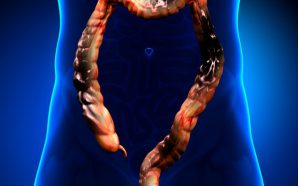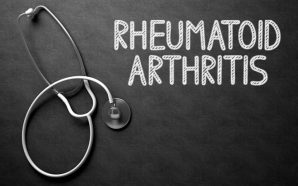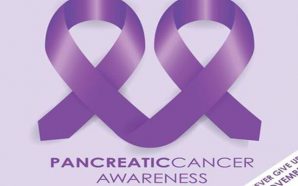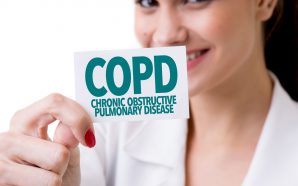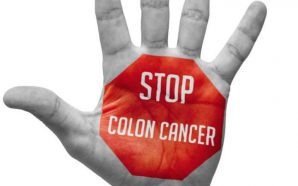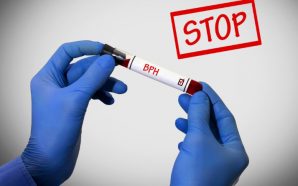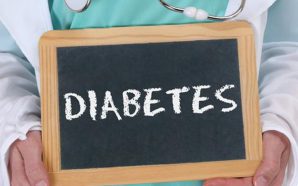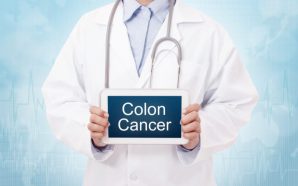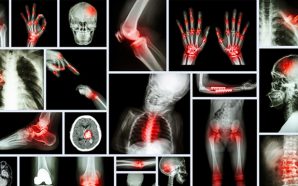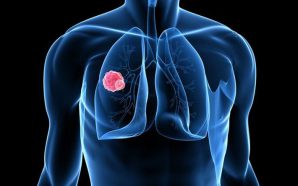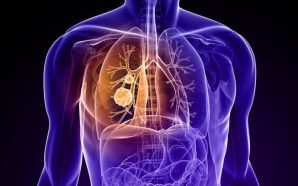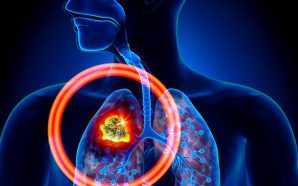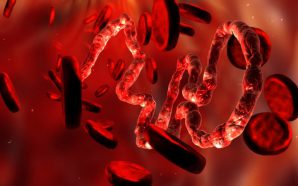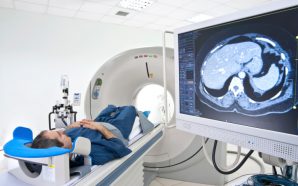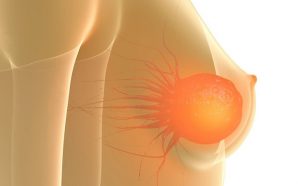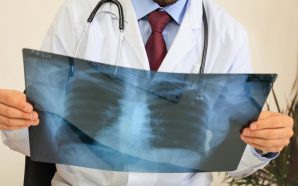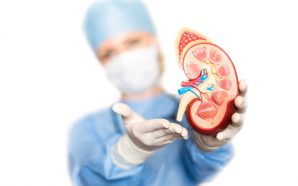-
Over 23 million people in the United States have diabetes, which is also known as diabetes mellitus. This leaves many people seeking diabetes information to help them manage this disease. Many have been officially diagnosed, but many others live with diabetes and do not even know it. They may...
-
What Causes Colon Cancer? Colon cancer is the name given to cancer in the large intestine, usually resulting from the cells of the colon mutating and multiplying to form cancerous polyps on the intestine. Colon cancer is one of the most common cancers identified in both men and women...
-
Rheumatoid Arthritis is a chronic disorder resulting from an inflammation of the membranes or tissues that line the joints, typically in the hands and feet, that generally develops in an individual between the ages of forty and sixty. Over time, rheumatoid arthritis can destroy the cartilage, ligaments, tendons, and...
-
It is still unknown exactly what causes most cases of pancreatic cancers. However, some risk factors have been linked to an increased chance of being diagnosed with the disease. Recent research has shown that some of these risk factors, such as smoking or heavy drinking, can affect the DNA...
-
COPD defined Have you ever become out of breath walking a few meters? Or wanted to try out for the hockey team but were afraid of becoming a panting outcast? Want to play hopscotch with your kids but can’t manage more than a few jumps without finding yourself absolutely...
-
The concept of masculinity has long been championed among men throughout their process of growth and when they finally attain adulthood. ‘Manly’ behavior is often associated with strength and strongly rids itself of any form of weakness such as ill health. As such, the traditional macho man has been...
-
You may have heard about irritable bowel syndrome (IBS), which refers to a digestive disorder that causes abdominal pain, cramping, bloating, gas, and changes in movements of the bowel. Women are affected more than men by IBS, even though this condition occurs mostly in the teens to early adulthood....
-
Alzheimer’s disease is a cognitive condition in which the brain’s nerve cells begin to die. This disease is most commonly associated with memory loss, but it also leads to problems with judgment and basic, day-to-day functions. Alzheimer’s does not develop quickly—instead patients begin to deteriorate slowly over a number...
-
How is Colon Cancer Treated? Treatment for colon cancer depends upon the stage of the cancer when discovered. Initial screenings such as colonoscopies and sigmoidoscopies can detect pre-cancerous tumors in the colon. These tumors can be removed and tested for cancer. These preventative screenings are extremely important in preventing...
-
While the signs of rheumatoid arthritis can seem hidden and unnoticeable, they may be more visible than you might think. Although there are indeed rheumatoid arthritis signs that some people might not be able to pick up on, there are still plenty of other symptoms that you’ll be able to...
-
For proper functioning, your body requires lipids, also known as cholesterol which is produced by the liver or contained in some foods. Cholesterol on its own doesn’t cause any health symptoms, though in excess it could cause complications like heart disease. To move around the body, cholesterol combines with proteins,...
-
The symptoms and signs of Chronic Obstructive Pulmonary Disease (COPD) include a heavy wheezing cough or a cough that brings forth large amounts of mucus (often called smoker’s cough); shortness of breath, especially with sports and chest tightness. Some of the symptoms and signs of COPD are identical to...
-
Going to the doctor for a prostate exam can cause men quite a bit of anxiety and dread. Unfortunately, this may cause men to put off or completely avoid this potentially life-saving procedure. Reasons for shunning a prostate exam may include feelings of embarrassment; fear of physical discomfort; or...
-
In most comedy movies, diarrhea is at the butt of many jokes — a bad pun to say the least! Diarrhea can be cause for a good laugh, but wait until you have diarrhea in real life, then it will no longer be a laughing matter. Diarrhea, though common...
-
Many people assume that since both diabetes mellitus and diabetes insipidus begin with the word diabetes, they must be related. They also share two common warning signs: increased thirst and excessive urination. But the truth is that these conditions are not related at all. The latin word for diabetes...
-
Important Facts To Know About Colon Cancer The colon is considered as one of the most important parts of our digestive system. When the malignant tissue in Colon grows then the Colon Cancer is occurred. The digestive system is harmed by it very seriously. It is the most harmful...
-
You’ll often hear older adults complaining about aching and soreness in their joints, even when doing tasks that don’t seem that strenuous. Medical experts estimate that nearly 50% of seniors get a diagnosis with a form of arthritis, making it a condition directly associated with aging. While it can...
-
Lung cancer is a type of disease that starts in the small tissue of the lung. In many cases, it begins by forming in cells that are lining a person’s air passages. Lung cancer comes in two different forms known as small and non-small cell. In order to diagnose...
-
COPD is commonly misdiagnosed — former smokers are often told they have COPD when in reality they have another less common lung condition. Likewise, many persons who truly do have COPD aren’t diagnosed until the disease is far advanced and interventions are less effective. Tests If you have symptoms...
-
Also referred to as a spontaneous abortion, a miscarriage is defined as the sudden loss of a fetus during the early stages of pregnancy—usually before the 20th week. According to the American Pregnancy Association, approximately 10% to 25% of all clinically confirmed pregnancies will end in miscarriage. The causes of miscarriage...
-
Arthritis refers to joint inflammation. You might have encountered some stiffness in your joints, maybe some pain or shortcoming, or in serious cases even some weakness, swelling and inflammation. These side effects can frequently be credited to some type of arthritis, as there are more than 100 related conditions....
-
What health professional treats type 2 diabetes? Many times individuals have type 2 diabetes and don’t know it. Signs of diabetes include increased thirst, frequent urination, hunger, infections, headaches, fatigue, and cuts and bruises are slower to heal. If you notice any of these changes, discuss your symptoms with...
-
Colon cancer is the development of cancer in the colon, or large intestine. It generally begins as small, noncancerous lumps, known as adenomatous polyps, that are asymptomatic and can take some time to turn into full-blown cancerous cells. This is largely the reason yearly colon cancer screenings are recommended—the sooner...
-
Meningococcal disease is caused by a bacteria strain known as Neisseria Meningitidis. This bacteria is one of the leading causes of bacterial meningitis in children between the ages of 2-18. You can protect your child by getting them the meningitis vaccine. There are two different meningococcal diseases: Meningitis: a...
-
Lung cancer is cancer that begins in the lungs. The lungs are located in the chest and are responsible for taking in oxygen and removing carbon dioxide. Unfortunately, when cancer grows in these organs, it is a very serious disease. In fact, lung cancer is the leading cause of...
-
So, it might seem like the occasional morning espresso is harmless during the nine months of your pregnancy. And who knows, maybe you weren’t even aware you were pregnant for the first few months of it! And that’s okay. A recent study shows that while the one-in-a-while coffee isn’t...
-
Also referred to as a spontaneous abortion, a miscarriage is the sudden loss of pregnancy before the 20th week. However, it occurs most often before the 12th week. About 15% to 20% of all confirmed pregnancies will result in miscarriage, but as many as 75% of all conceptions will end up as miscarriages. The...
-
With the approval of new Hepatitis C treatments by the FDA into the market, there have been mixed reactions as to whether it is best for sick patients. With the price being the main reason for complaints, the new drugs are more welcomed as they have made the treatment...
-
According to the CDC, there are two types of meningococcal vaccines available in the United States. The first is the meningococcal polysaccharide vaccine, or Menomune. The second is the meningococcal conjugate vaccine, which is otherwise referred to as Menactra, Menveo, and MenHibrix. Both vaccines work to prevent four types...
-
Deep vein thrombosis is a condition that occurs when a blood clot forms in one or more of the deep veins in your body, usually in the legs. This condition sometimes develops when you don’t move for a long period of time, such as after surgery or an accident when you...
-
Meningitis is a disease that occurs when the meninges (coverings of the brain) become inflamed. The disease is caused by a bacterial or viral infection of the fluid surrounding the brain and the spinal cord. The disease causes symptoms such as intense pain, sensitivity to light, convulsions, fever, stiff neck,...
-
Lung cancer is a type of disease that starts in the small tissue of the lung. In many cases, it begins by forming in cells that are lining a person’s air passages. Lung cancer comes in two different forms known as small and non-small cell. In order to diagnose...
-
Pulmonary embolism is a blockage of a pulmonary artery, which is a blood vessel in the lung. Pulmonary arteries bring deoxygenated blood from the right side of the heart to the lungs, and this allows oxygen to be absorbed by the blood. Given the role of these arteries, pulmonary...
-
A miscarriage is a spontaneous loss of pregnancy that occurs before the 20th week. Miscarriages can be difficult physically, but they can also be very emotionally draining as well. No matter the circumstances, miscarrying can be a devastating experience for both you and your partner. You might feel angry, guilty, or...
-
Total hip replacement, which is also known simply as hip replacement or hip arthroplasty, is a long-term surgical treatment for reducing your hip joint pain and increasing your hip’s range of motion. Hip replacements are performed by orthopedic surgeons, physicians who specialize in treating diseases and conditions relating to the...
-
About one out of eight American women develop breast cancer at some point in her life. Even faced with such scary statistics, doctors still find it hard to say what exactly causes cancer in a person, how and why it starts. In many cases, the prognosis is optimistic, but...
-
Deep vein thrombosis, commonly abbreviated “DVT,” is a condition that occurs when a blood clot forms in one or more of the deep veins in your body, usually in your legs. DVT is a serious condition because if a blood clot in your vein breaks loose, it can travel through...
-
According to the CDC, there are two types of meningococcal vaccines available in the United States. The first is the meningococcal polysaccharide vaccine or Menomune. The second is the meningococcal conjugate vaccine, which is otherwise referred to as Menactra, Menveo, and MenHibrix. Both vaccines work to prevent four types of...
-
Lung cancer is a cancer that begins in lungs. The lungs are located in the chest and are responsible for taking in oxygen and removing carbon dioxide. Unfortunately, when cancer grows in these organs, it is a very serious disease. In fact, lung cancer is the leading cause of...
-
Kidney cancer or renal cancer develops in the cells of the kidney; the various types of renal cancers are determined based on the specific cells in which cancerous cells are detected. The detection and prevention of kidney cancer can be challenging as they develop in unlikely ways and have...
-
Gum disease is a progressive infection in your gums and surrounding teeth and bones. Although the infection can occur at any age, it is most common among adults. If left untreated, gum disease can cause serious destruction to your teeth, gums, and bone. There are three main stages of gum disease....
-
Some people’s view on good health means that they need to have more and more medical tests. They also think they should be having more visits to their doctor and to always remain vigilant. However, in some circumstances this really is not the best approach. Too much medical testing...
-
Deep vein thrombosis (DVT) occurs when a clot forms in the deep veins, usually of the leg. You may notice swelling or pain in the calves, or there may be no symptoms at all. Although these may seem mild, DVT is a serious medical condition for which experts recommend immediate...
-
Many of the cancer treatment and therapies nowadays are strong and efficient in the battle against cancer. Long gone are the days when humans were powerless against cancer and its consequences. It is widespread knowledge that cancer is still difficult to cure. However, the advancements in treatment strategies today,...
-
There are three vital things you should know about lung cancer: it is an equal opportunity “killer;” non-small cell lung cancer (NSCLC) is the most common type and grows and spreads more slowly than other affected cells; and recent findings show that lung cancer survival rates have improved. Therefore,...
-
Kidney cancer is a life-threatening condition that can interfere with the kidneys’ ability to remove toxins from the bloodstream. Fortunately, if you are aware of the risk factors that contribute to kidney cancer, you can reduce your likelihood of developing this condition. Understanding Kidney Function You have two bean-shaped...
-
Gum disease, also referred to as periodontal disease, is caused when the tissue and bones surrounding the teeth become swollen and infected. The two stages of gum disease are known as gingivitis and periodontitis. Gingivitis is a mild form of gum disease in which the gums become swollen, red,...
-
An asthma diagnosis can be limiting and frustrating at times. It may necessitate you to make some adjustments in your lifestyle. Many patients become extremely overwhelmed, and they let the disease control the way they live their lives. With all the advancements in treatment and the free flow of...
-
Deep vein thrombosis (DVT) occurs when a clot forms in the “deep veins” of the body, specifically the legs. DVT is serious, and the complications that ensue can be fatal. While there are quite a number of risk factors for developing DVT, there are also things you can do...
-
Cancer is the malignant growth of body cells. Breast cancer affects the mammary tissues and is ranked second killer form of cancer in women after lung cancer. Although it affects men it is not common and only a small number get affected. However, with the laid out measures to...












